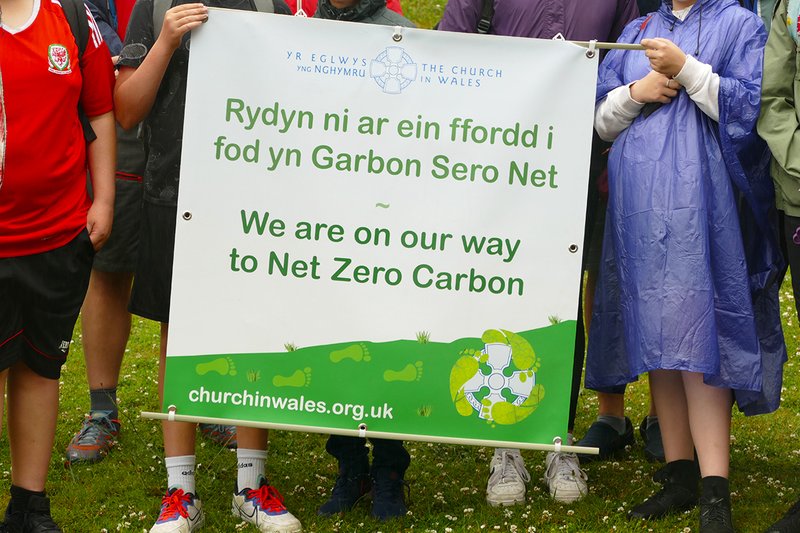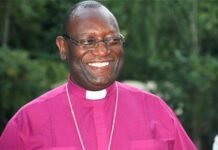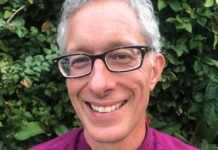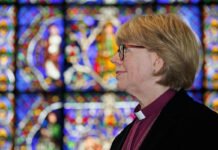The health of Wales’ waterways and landscape will be the focus of an all-Wales climate summit hosted by the Church in Wales next year.
The two-day event will bring together academics, activists, pressure groups and stakeholders to discuss the impact of industry, agriculture and homes on the environment.
The summit was announced by the Archbishop of Wales, Andrew John, in his Presidential address to members of the Church’s Governing Body at the start of its two-day meeting today (September 5).
Wales, he said, had “the opportunity to redesign our approach to energy, water, land use and the sustainability of food supply and at a local level” and the Church on Wales was well placed to bring people together in “good conversation and partnership”.
Archbishop Andrew said plans were in progress for “an intelligent and honest conversation about one of the great challenges we face”. He said the event would allow key people to listen to one another and “find not only a common language but agree broad principles that allow policy and direction to emerge.”
It was the Church’s role, he said, to bring people together: “We have seen that church must mean much more than prayers and gathering on Sunday, that our commitment to justice, to the creation, to the poor might take us into uncomfortable places…… We are not the experts save we know what good signposting looks like and what human flourishing involves. Our ability to bring people together in good conversation and partnership should never be underestimated.”
The summit will take place in the second half of 2024. More details will be published nearer the time.
Meanwhile, the Church in Wales had made some early good progress in its response to the climate emergency, said Archbishop Andrew. “There are of course things to celebrate: it is now two years since we divested from fossil fuels – a major achievement and act of public witness. That action did not seem likely a few years ago. We’ve set ambitious goals and have made some early good progress. The Governing Body also voted for our net zero ambition. We have a 10-Point Plan to spur us into action and a carbon calculator, the Energy Footprint Tool, to guide our plans.”
He called on churches to use the Energy Footprint Tool, challenging them to complete it by Christmas. “This is an easy action for churches to take but a vital one as it shows us where we are and how we can get to where we want to be,” he said.

Other priorities for the Church in Wales included greater support for its mission and ministry, said the Archbishop. The Growth Fund was being made available for evangelismand a wide variety of bids was expected, from life events, such as baptism, weddings and funerals, to pioneering and church planting.
Specific challenges included recruiting the right people and supporting the existing workforce. “A provincial strategy for recruitment appears critical if we are to find the numbers of pioneers, licensed lay ministers and others to work with us,” said the Archbishop, adding that, at the same time, colleagues needed “enormous support” in the ministry they offered. “What we are asking from them is significant. The period in which Christendom flourished is long past. We need a less reactive and more focused, articulated approach to ministry.”
One area to develop was in teamwork, as demonstrated in Mission and Ministry Areas. “They allow us to do together what we could not do apart,” he said.
A Working Priorities Group had been set up to look at the Church’ governance structure and the possibility of bringing the strategic and financial parts of it together. It was also looking at the factors that made Ministry Areas flourish. “It is becoming clear that a few simple but vital principles are critical: the spiritual health of the churches, simple governance arrangements, key collaborative relationships within the Ministry Area and a strong proactive commitment of engagement with the area,” he said. The results would be shared when the work completed.
Another development was a “learning community” to listen to and share examples of successful initiatives taking place in cathedrals, rural and urban churches. The Diocesan/Provincial Learning Community would meet later this year. “Our history has not always involved healthy competition marked by generous sharing and honesty. A new culture of support for one another across the dioceses should become normative and not exceptional,” said Archbishop Andrew.
He concluded, “What lies at the heart of our life is a belief that God loves us and this world, that a relationship with God is not only possible but opened to us in Jesus Christ. All else flows from this conviction.”



